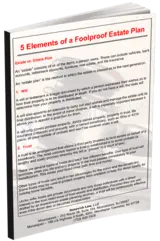The term “estate planning” may recall drafting wills or establishing trusts. While these efforts usually determine how a person’s future assets will be distributed, an estate plan can also deal with issues like qualifying for Medicare or paying for long-term care.
When you have questions about Medicare and long-term care programs in Moorestown, seek help from an attorney at Nesevich Law, LLC. A skilled elder law attorney could answer your questions about structuring your estate so you qualify for long-term care support.
What Is Long-Term Care?
Long-term care describes the services provided to a person who cannot meet all of their own needs. This care is considered long-term because the person requiring these services could spend months or years unable to care for themselves. In some situations, a person could receive long-term care for a short period.
Long-term care includes a variety of services, often involving help with daily living, such as grooming, bathing, preparing food, using the toilet, or simply moving around the home.
Most people in Moorestown who require long-term care and Medicare do so because of poor health or disability. The need for this care often stems from a significant health event like a heart attack; however, most long-term care is the result of aging.
Does Medicare Cover Long-Term Care Expenses?
Medicare is not always the best option for paying for long-term care. While this program can pay for some long-term care costs, these are temporary at best. Medicare will cover at most 100 days of long-term care, and these payments are generally for people with significant healthcare needs.
There could be other options available, including Medicaid coverage. Medicaid is a program funded jointly by the state and the federal government. A large portion of this funding goes toward long-term care expenses, including nursing home or at-home care costs.
Eligibility Requirements
There are strict eligibility requirements for Medicaid: The person must not only rely on a small amount of income each month but also have few personal assets. Some exceptions exempt the value of a home, mainly when a spouse still lives in it. A talented lawyer in Moorestown who understands how to navigate long-term care programs like Medicare and Medicaid could help someone determine their best options.
What if the Person Owns Their Home?
There are strict limitations for relying on Medicaid to cover the cost of long-term care. In addition to limited monthly income, assets like a home can render someone ineligible for Medicaid.
Fortunately, the person can take steps to protect their assets while also qualifying for Medicaid. By placing the property in an irrevocable trust, it is no longer considered an asset under the law.
Speak to a Knowledgeable Attorney About Medicare and Long-Term Planning in Moorestown
When you have questions about Medicare and long-term care programs in Moorestown, an attorney could have the answers. You could discuss these questions during an initial consultation with your attorney at Nesevich Law, LLC.
Qualifying for these programs is often an overwhelming experience for you and your family. Fortunately, our legal team members have the knowledge and experience to guide you through the process to ensure your eligibility. Reach out to our office right away to schedule a meeting and get started with your case.

 (856) 439-6223
(856) 439-6223
